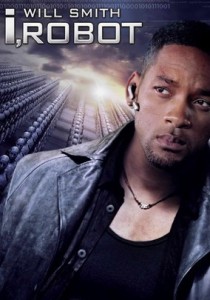It’s all Darwin’s fault
May 28th, 2015
For a shock, read Francis Wayland’s The Elements of Moral Science (1835; try also here), “one of the most widely used and influential American textbooks of the nineteenth century“.
As Wayland – prior to Darwin’s theory of evolution – explained, conventional Christian morals were based on the idea that Man was made by God, and so had special moral responsibilities.
Darwin knocked that bucket over, and in the process broke the long-accepted rationales for all kinds of legal, moral, and ethical rules. The reverberations from that were still being felt at least into the 1970s, and included socialism, progressivism, communism, the sexual revolution (of the 1920s, not the 1960s one), fascism, bad art, ugly buildings, environmentalism, hippies, flower power, and more. Some of it was good, more of it was bad. Things didn’t really start to settle down until the 1980s in the US, the 1990s in Europe, and still aren’t settled in the Islamic world.
And there are plenty of people – all over the world – who still haven’t made peace with it.
In Asia there wasn’t as much commotion about Darwin because Asian societies tended to take their social rules from non-theistic sources (as the West does now, mostly); Darwin’s revelations didn’t invalidate them.
It is telling, I think, that East and West had more-or-less similar rules (and still do, post-Darwin), despite supposedly getting them from independent sources.
I think that shows the rules really came from social evolution, a la Friedrich Hayek (certain rules tend to make societies dominant). Ironic, no?
Disaster profiteering & emotions
March 29th, 2015
Why does almost everyone (even me) feel disgust at disaster profiteering?
On the face of it, that’s the market at work – big needs bring high prices, which bring lots of supply, right? It seems (looking at it economically, not emotionally) the quickest way to get help to those in need. But it disgusts me, too.
My hypothesis is that people instinctively fear that profiteers will engineer a crisis if they can make a profit from it. To prevent that, there’s social opprobrium for profiting from a crisis.
Just a thought.
How to deal with tailgaters
March 29th, 2015
I learned the hard way not to speed up.
Once at night I had a tailgater on a two lane road (no easy way to pass), and, being a nice guy, I sped up to accommodate him.
A mile later, the tailgater turned on his blue lights, pulled me over, and gave me a ticket for speeding.
So, now:
1) I get as far to the right as possible (left in countries that drive on the left).
I hope that’ll let them pass. Sometimes it doesn’t.
2) So then I slow down. Gradually (no “brake checking”).
And keep on slowing down. Until they pass me.
Occasionally I’ll have to slow down a lot before they’ll pass me – it’s amazing. Sometimes I end up going 15 miles/hour on a limited access highway! (interstate/freeway/autobahn/etc.)
[I wonder if these people just think it’s normal to drive 16 inches behind the car in front of them – once they finally pass, they look…confused.]
One time, on a small road, I had to come to a complete stop before the guy would pass me!
Guess what – he turned out to be a cop. Once I stopped he, very slowly, went around me and drove away.
A brief overview of history
March 29th, 2015
In the traditional inverse-log focus:
Big bang. Galaxies. Earth. Life. Bacteria. Plants. Oxygen in the atmosphere. Animals. Smart animals. Then fire and cooking. A lot of fighting.
Then agriculture. Soon after, writing was invented around 10,000 years ago. Recorded history begins.
Then wheels. Empires and a lot more fighting. Classical civilization (Greece and Rome) rose and fell. Big organized religions.
Printing press. Perspective drawing. Global travel by sailing ships. Epidemics. First global maps. Securities markets. Corporations. The beginnings of science around 1650, mostly in northern Europe.
18th century: Notions of human rights proposed. More empires. Symphonies. European colonization of Africa and Asia. Newtonian physics. Bach. Beginnings of chemistry.
The great 19th century: Industrial revolution – steam engines, precision machines, factories, mass production, electronic communication. Photography. Railways. The first time substantial numbers of people lived at above bare subsistence level. Periodic table. More empires and wars. European domination of the world. Slavery mostly abolished. Darwin’s discovery of evolution. Classical physics.
20th century: Relativity. Quantum physics. Aviation, cinema, automobiles, radio. Ideological extremism. Nuclear power, electronics, computers, primitive space travel. Rock and roll. Molecular biology. More wars, less empires. The early Internet.
21st century: A majority of Earth’s population lives above bare subsistence, mostly thanks to reforms by the Chinese Communist Party (not communist in anything but name). Advances in cosmology and computer science. Wars, but less so.
And here we are.
Added January 2024: …Signs of a renaissance in space travel. Early AI.
Thank you, Lee Kuan Yew
March 23rd, 2015

Lee Kuan Yew passed away yesterday.
Much to my regret, I never met him. I did not agree with him about many things.
But he was the greatest single benefactor of mankind in history.
As a direct result of the actions of Harry Lee and his “socialist” People’s Action Party, billions of people were lifted out of abject poverty, through reforms first in Singapore, then copied in China and in much of Asia.
Billions of people.
Today Reuters quotes Lee as saying in 1986 “We have to lock up people, without trial, whether they are communists, whether they are language chauvinists, whether they are religious extremists. If you don’t do that, the country would be in ruins”.
He outlawed long hair on men in the 1970s. Banned the sale of chewing gum. And, of course, many drugs.
Those things don’t fit with my politics. But look at the result. Singapore, once almost a synonym for filth and poverty, today is arguably both the freest and wealthiest country in the world. And – billions of people.
Deng Xiaoping, architect of China’s rise through market economics, based directly on emulation of Lee Kuan Yew’s policies in Singapore, famously said “it doesn’t matter whether a cat is black or white, if it catches mice it is a good cat”.
Lee’s cats caught mice.
And so, despite everything, I mourn Lee Kuan Yew.
And, about our political disagreements? Maybe I’m wrong.

Movie review – I, Robot
January 10th, 2015
 [Yes, the 2004 version; I just saw it.]
[Yes, the 2004 version; I just saw it.]
For decades, movies about humans vs. aliens or humans vs. robots were thinly veiled parables about racism, xenophobia, loving thy neighbor, etc.
Especially so if one of the main characters is black.
No spoilers here, but at the start of this movie Will Smith’s character hates robots. Hates them for no obvious reason.
But this movie is not about racism or foreigners, or anything even vaguely like that. It is actually about robots.
By the end of the movie, Smith no longer hates robots. But not because he’s learned to be a better person. Oh, no, that is not the reason at all. Because this movie is not about that – it’s about intelligent machines.
I won’t say more – see it. But this movie rejects many standard Hollywood tropes and comes up with something genuinely fresh. And it shows that at least some people in Hollywood (Will Smith, anyway – who is also a co-producer) are able to make movies – even starring black people – about things other than racism. Imagine that!
And it has some important things to say about robots – things that may not occur to you until the next day after you see it.
It’s not an Asimov story – it just takes his robot stories as background. But I think Asimov would have liked it (so will Nick Bostrom).
It’s not a perfect movie, so one star off for that. But see it. 4/5 stars.
All wealth comes from arbitrage
December 19th, 2014
Arbitrage is the act of moving things from a place where they’re less valuable (cheaper, if you like) to where they’re more valuable (more expensive).
Normally the term is used in financial transactions – if a ton of wheat is worth $200 in Chicago and it’s worth $250 in Houston, I can buy it in Chicago, sell it in Houston, and make money. That’s arbitrage.
But – that’s just a financial manipulation; a trick played with numbers to cheat the system. I haven’t really created anything or done anything useful.
Right?
Tho it may seem that way, not right. Economics is not intuitive.
Suppose I have a pile of wood. It has some value. I get tools, work hard with them, and turn the wood into a house.
(If you’re outside America, assume a pile of stones – I know you people think making houses out of wood is crazy.)
The house is worth a lot more than the wood pile was.
This also is arbitrage. We don’t usually call it that, but it is – I’ve moved the low-value wood in such a way that it’s now a high-value house.
Yes, I used capital (the tools) and labor (the work) to do it, but that’s how I did it – not what I did.
This is where all wealth comes from – moving things around from less-valuable conditions into more-valuable conditions.
Capital and labor and technology are useful only when they help with arbitrage (digging holes and filling them up again uses labor, and shovel-capital, and scooping-technology – but doesn’t create any wealth).
Another example – when I was in kindergarten, sometimes I’d get sent with a salami sandwich (this was before in-school cafeterias). I didn’t love salami – I preferred tuna. But a friend had a tuna sandwich, and preferred salami. We’d swap. (Yes, I know that’s not allowed anymore.)
By swapping, we turned two not-highly-valued sandwiches into two more-valued sandwiches – because we each preferred the other’s sandwich. The sandwiches remained exactly the same. But the value increased – by arbitrage.
Back to the ton of wheat in Chicago. Let’s ask why wheat is cheaper in Chicago. There must be a reason, even if we don’t know what it is. Maybe there was a bumper wheat harvest in Illinois (where they keep Chicago), so there’s more than people can eat. Maybe they like rice better. Whatever.
In Houston – the opposite. Maybe there’s a pizza holiday that uses up lots of wheat. Or a bad harvest in Texas…again, whatever.
The point is, by moving the wheat from Chicago to Houston, I’m moving it from where it’s needed less to where it’s needed more – afterwards, there is less excess wheat in Chicago (and more valuable money), and less shortage in Houston. So I made both places better off.
Which means it was not a trick – I really did do something useful. I created wealth. And some of that wealth I get to keep (some will go to the seller in Chicago, and some to the buyer in Houston – exactly how much depends on negotiating skills, buy/sell spreads, etc.).
So arbitrage is where all wealth comes from. It is the sole reason we don’t live in caves anymore.
Murphy’s law
November 17th, 2014
Murphy’s law anticipated the Everett-Wheeler conjecture (viz., “all permutations will be explored”).
Which I find ironic, considering that neither Everett nor Wheeler wrote about keyed connectors at all.
Google does not sell user information
August 10th, 2014
Google sells the use of user information.
It is not the same thing.
Selling “Joe Blow works at Acme Corp and shops for sex dolls” is selling user information.
Selling “I will advertize your sex dolls to people who shop for them” is selling the use of the information. Only Google knows you are Joe Blow at Acme with an interest in sex dolls. The advertiser does not; they just get a service that makes use of Google’s knowledge.
Yes, Google knows your stuff. Yes, you have to trust them with it.
But they don’t have to – and don’t – sell your info in order to profit from it.
Pope Francis has it exactly backwards. Again.
March 16th, 2014
Pope Francis is quoted in the March 8 2014 Economist:
“While the earnings of a minority are growing exponentially, so too is the gap separating the majority from the prosperity enjoyed by the happy few,” he has written. “This imbalance is the result of ideologies which defend the absolute autonomy of the marketplace and financial speculation. Consequently, they reject the right of states, charged with vigilance for the common good, to exercise any form of control.”
No, “the absolute autonomy of the marketplace and financial speculation” is precisely what we don’t have. As an old-time socialist friend once said, “The main problem with capitalism is that we don’t have it.”
His Holiness has it exactly backwards, and in two independent ways at that.
First, “the earnings of a minority growing exponentially” is not a problem unless it comes at the expense of others. Reminds me of “Tax the rich, feed the poor/ till there are no rich no more”; it is poverty that we want to eliminate, not wealth.
Second, and less obviously, the reason crony capitalists have enormous fortunes is precisely because politicians do have the power “for the common good, to exercise any form of control”.
As long as politicians have power, whether “for the common good” or with any other excuse, to pick winners and restrict competition, people will find ways to corrupt politicians to get these goodies.
Whatever the original motivation, regulators are always and everywhere captured by the regulated, who write regulations for their own benefit.
Capitalism works for the public good only when people are allowed to freely trade with one another without permission or blessing from heavily armed government thugs.
The things Pope Francis doesn’t like about capitalism are not part of capitalism. They are part of the doomed attempts to “regulate” it. His Holiness doesn’t understand what capitalism is. Neither do most capitalists. Or most Republican “defenders of capitalism“. Maybe we need a new word.